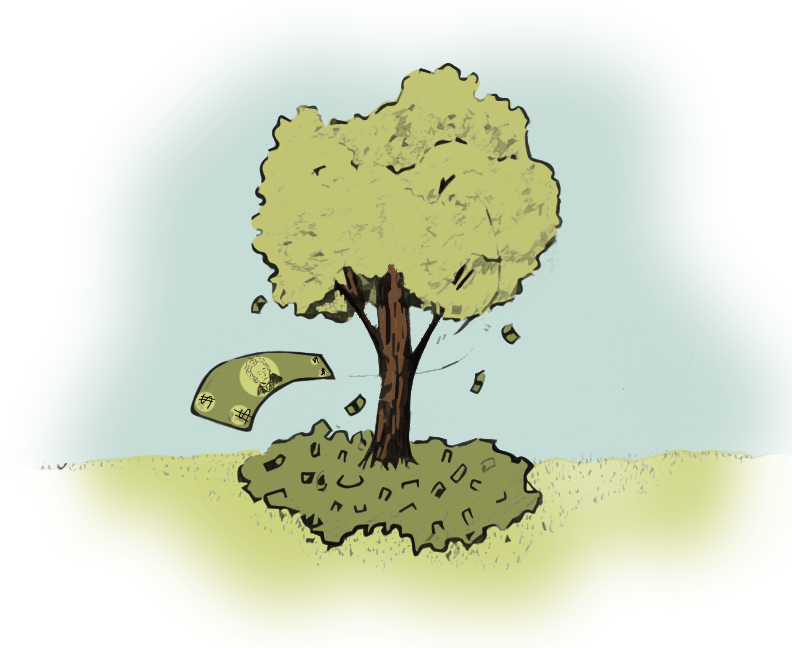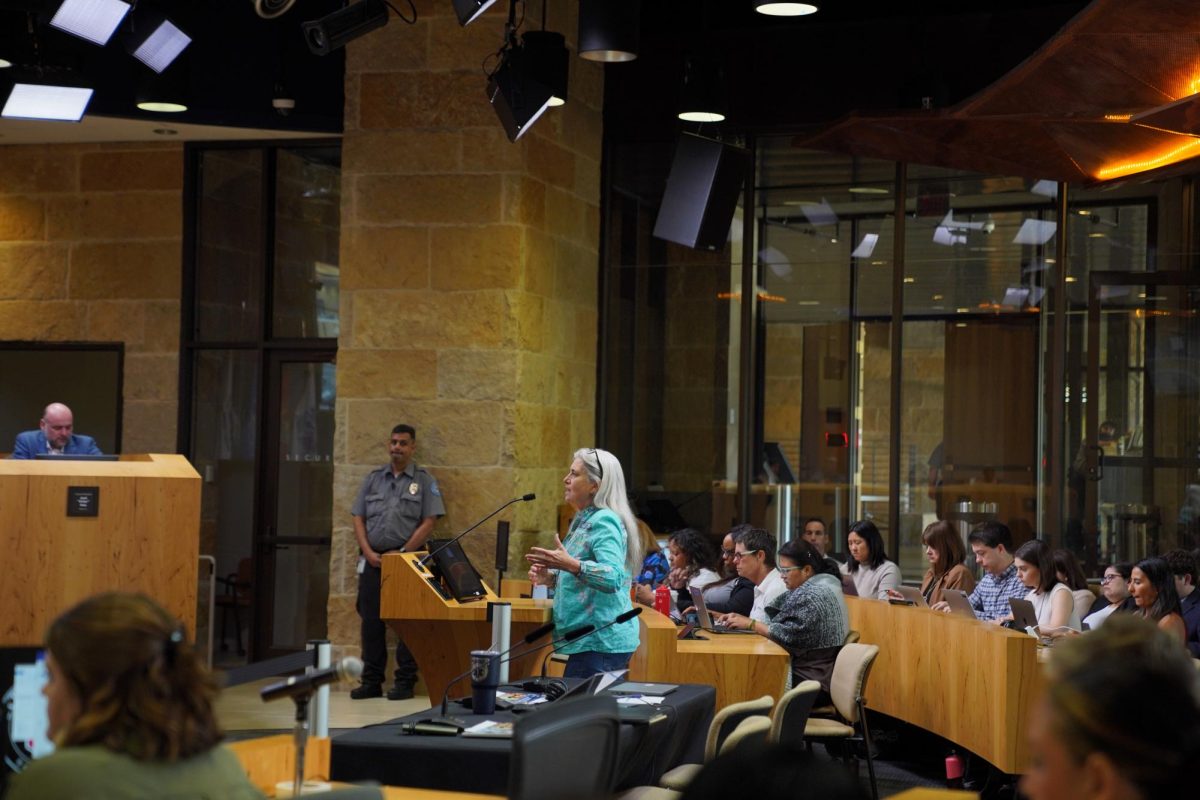The lilting sounds of classical Middle Eastern instruments filled the covered patio of Central Market Cafe as visitors sheltered themselves from bitter winds to enjoy music for Nowruz, the Iranian New Year.
Nowruz occurs on the spring equinox, the first day of the Iranian calendar, which fell on Saturday this year.
Nine-year-old Sara Hosseini, wearing a glittering red dress wrapped over her clothes, greeted attendees with an impish grin. Near her at the entrance sat a table holding various objects, including fruit, a book of Persian fortunes and a goldfish in a bowl. Hosseini, who moved to Austin from Iran last year, said that for good luck, Iranians set seven things on a table that begin with the letter S in Farsi, such as vinegar, apples and coins for health, patience and wealth. She explained that the fish represents freedom and the constellation Pisces, the last constellation in the calendar.
Out on the patio, Bereket, the UT Middle Eastern Ensemble directed by assistant professor Sonia Seeman, provided entertainment.
Bereket, a collaboration between the Middle Eastern Studies program and the Butler School of Music, normally consists of about 35 musicians; however, only 12 performed Saturday.
“Nowruz is a very ancient spring ritual with early influences in other cultures — not just Persian, and even different religions, like Christianity and Judaism,” Seeman said. “It’s symbolic for [Bereket] to perform on Nowruz because of all the different religions and cultural backgrounds represented in the ensemble.”
Seeman said it was a powerful image to see community members from Iranian, Palestinian, Egyptian and other Middle Eastern ethnic backgrounds sitting side by side, a counterexample to the negative relationships portrayed in the media.
For centuries, Middle Eastern countries have been quite interconnected and have borrowed from one another’s cultures, Seeman said. This can be seen in how the same songs travel throughout multiple countries for so long that their exact origins become slightly murky, she said.
The Turkish word “bereket,” meaning “abundance” and “divine gift,” can be found in Arabic, Farsi and Hebrew as well, Seeman said.
“I thought it was a beautiful idea for music because it’s the gift that never runs out,” she said.
Members of the ensemble span more than one generation, including a father-and-son duo, and invite students and Austinites to learn the history and culture of the Middle East while learning both traditional and popular music.
Singers who performed with Bereket sung in Turkish, Arabic and Ladino, an ancient language from Spain. Aerospace engineering graduate student Ashley Biria performed a solo improvisation on the tar, a Persian lute.
Festivities for Nowruz began Wednesday with Chaharshanbe Suri, a fire festival that precedes the New Year. Festivalgoers jump over a fire as a way to get rid of bad spirits.
“It’s like you’re giving your paleness and sickness to the fire and taking the warmth and strength from it,” said Naz Delshad, a UT alumna and emcee for Saturday’s event.
Leading up to Nowruz, families begin extensive housecleaning and purchase new clothes to wear on New Year’s Day. Each family also plants barley sprouts in a pot to collect illness and bad luck. On the 13th day after Nowruz, people throw the sprouts into a river or stream so the running water can take the illness and bad luck away, Delshad said.
The number 13 is considered unlucky, said Kamran Hooshmand, a radio-television-film graduate student. On the 13th day after Nowruz, staying in the house is considered a way of bringing bad fortune, so families go on a picnic, Hooshmand said. Hooshmand performed at the cafe with his band, 1,001 Nights Orchestra.
“After that, it’s like you can finally get a good start to a new year,” Hooshmand said.




















